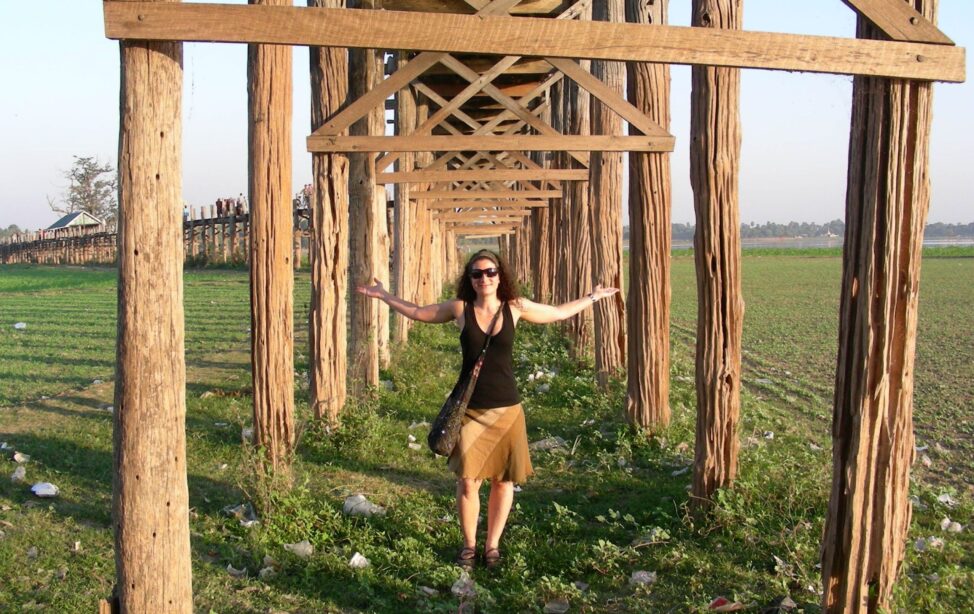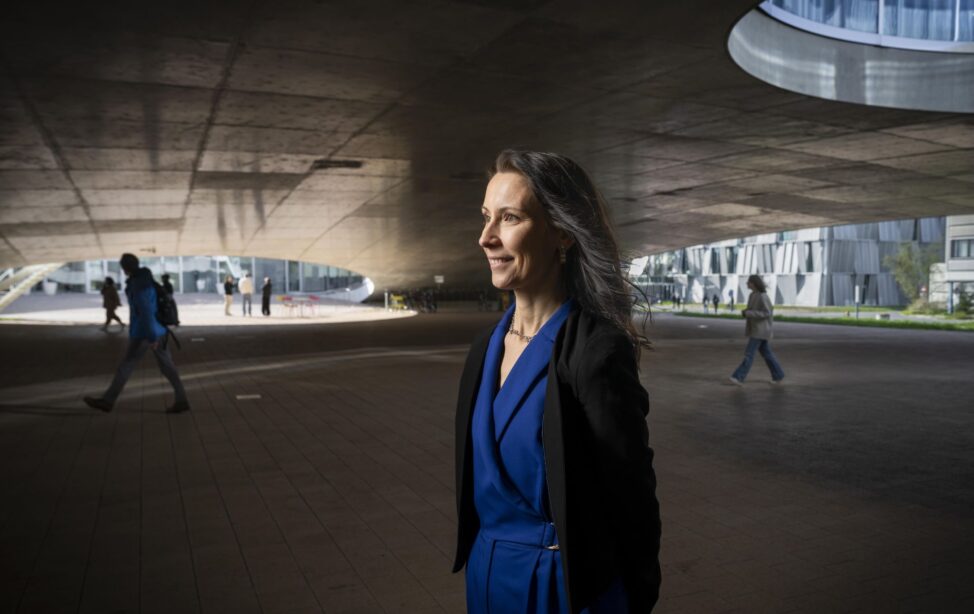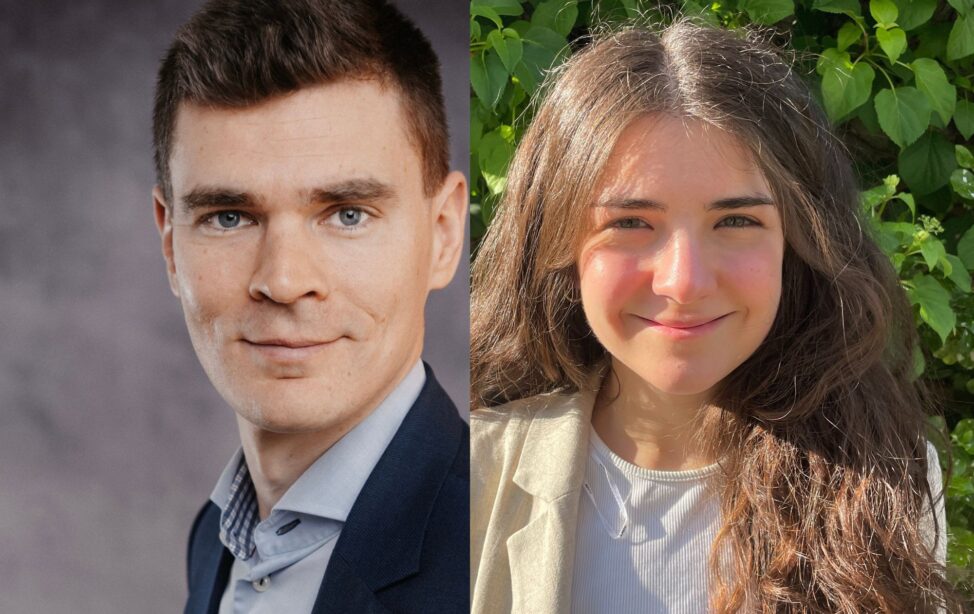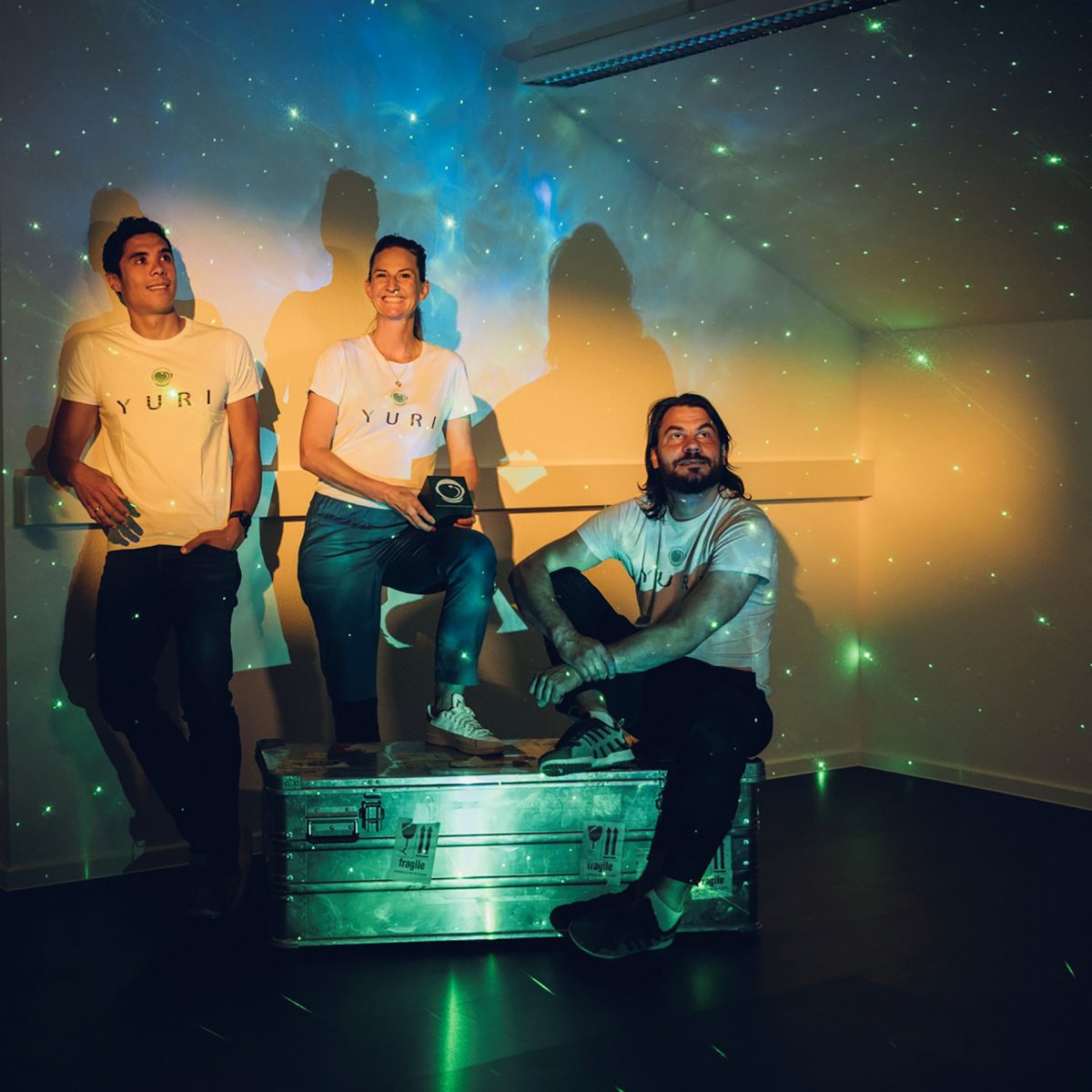
With their start-up yuri, TUM Alumni Mark Kugel (left), Maria Birlem (center) and TUM Alumni Christian Bruderrek (right) are venturing into a market that has not existed before. They are making commercial research in microgravity easier, cheaper and quicker than ever before. For their work they were awarded the Deutscher Gründerpreis In 2021 (photo: Dirk Bruniecki/yuri).
Entrepreneurs Christian Bruderrek und Mark Kugel
“We Want to Leave a Bigger Mark”
TUM Alumni Christian Bruderrek (Diploma Aerospace, Aeronautical and Astronautical/Space Engineering 2004) and Mark Kugel (Master Management & Technology 2016) launched their start-up yuri to streamline the implementation of such zero-gravity experiments.
LUCKY BREAK
When Mark Kugel went to a start-up event at Zeppelin University at Lake Constance, his plan was to recruit new employees for his then employer Rolls Royce. On leaving the event, however, he himself had been headhunted. Now he was going to launch his third start-up together with aerospace engineers Christian Bruderek and Maria Birlem.
From an early age, Christian Bruderrek was deeply passionate about space travel. He knew early on that he wanted to become an aerospace engineer and thus decided to study Aerospace, Aeronautical and Space Engineering at TUM when the time came. When he was allowed to design parabolic flights for the International Space Station ISS at the Chair of Thermodynamics, first in the team of chair holder Prof. Dr. Dr. Johannes Straub, then under his successor Prof. Dr. Thomas F. Sattelmayer, he was even more driven to pursue this career. “Working together in the teams was incredibly fun,” he recalls. “It gave me the drive to really wanting to do these kinds of projects professionally.” After graduation, he spent fifteen years developing spacecraft and zero-gravity payloads, most recently at Airbus Defence and Space GmbH in Immenstadt am Bodensee. In collaboration with space engineer Maria Birlem, he launched the Kiwi project there, with which the two have carried out nine experiments on the ISS.
In Germany in particular, we need to think bigger and be more bold.
TRAILBLAZERS
In 2019, the TUM Alumni and Maria Birlem co-founded their start-up based in Meckenbeuren near Friedrichshafen. As a tribute to the Soviet cosmonaut and first man in space, Yuri Alexeyevich Gagarin, they named it yuri. Together, they developed a minilab that allows experiments to be set up on a small scale and can thus be sent into space faster and much more cost-effectively.
TUM Alumni Mark Kugel is not only on the ball when it comes to entrepreneurship. Even dressed up as a rocket, he runs the fastest marathon. This achievement has earned him the Guinness World Record (photo: private).
SETTING EVEN HIGHER GOALS
In just a short time, Christian Bruderrek and Mark Kugel were able to experience that you can indeed propel rather ambitious and complex things forward with a small company – if you are bold enough to try. Since the company’s launch, they have already taken two experiments to the ISS, one on behalf of NASA, the other for the British pharmaceutical company GlaxoSmithKline. “In Germany in particular, we need to think bigger and be more bold,” says Mark Kugel. “We are working with a market that hasn’t existed before.”
So far, yuri is a service provider of lab experiments in space. In the near future, however, the company aims at becoming a biotech company that produces its own products such as bio-material or farms entire organs in microgravity. “We want to be a small company that leaves a bigger mark,” says Christian Bruderrek and Mark Kugel adds, “We want to make the world a little better.”
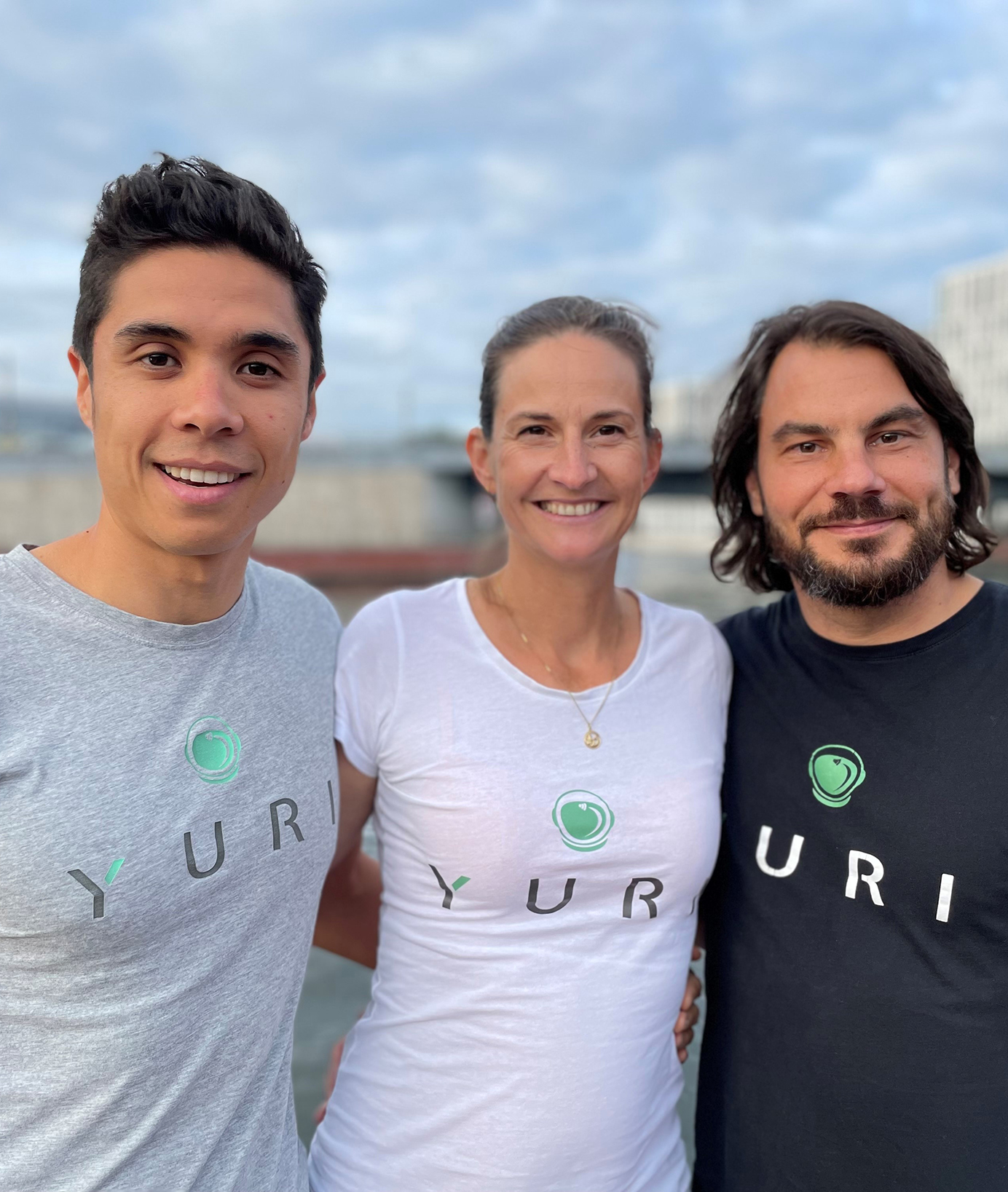
(from left to right): TUM Alumni Mark Kugel, Maria Birlem and TUM Alumni Christian Bruderrek (photo: yuri).
Diploma Aerospace, Aeronautical and Astronautical/Space Engineering 2004
Master Management & Technology 2016
Christian Bruderrek studied Aerospace, Aeronautical and Astronautical/Space Engineering at TUM. After his graduation in 2004, he worked for aerospace companies in Germany and Switzerland for fifteen years. Starting his own business was not his primary goal. And yet, in 2019, he took the plunge into entrepreneurship and launched the start-up yuri. Here, he is responsible for all operations, space agency topics and international partnerships and for setting up the Luxembourg office. Christian Bruderrek is married and lives in the countryside around Lake Constance with his wife, three children and two turtles. In the daytime, he spends his free time in nature playing sports and at night he is sorting Lego bricks.
Mark Kugel graduated from the Baden-Württemberg Cooperative State University with a Bachelor’s degree in Industrial Engineering. At TUM, he completed a Master’s degree in Management & Technology and earned an Honors degree in Entrepreneurship, Innovation, Product Development from CDTM. He furthermore completed a Master in Business Administration and Management at the Indian Institute of Management in Bangalore. Before joining yuri in 2019, Mark Kugel had already launched two start-ups and supported the digital transformation of engine manufacturer Rolls-Royce Power Systems. At yuri, he is responsible for commercial business development, sales and all marketing channels. Mark Kugel is married and father to a baby daughter.
Together with Maria Birlem, the two TUM Alumni co-founded the start-up yuri in 2019. Their minilab allows them to send experiments into space much quicker and more affordable than previously possible. When conducting experiments in their microgravity simulator or in drop towers on Earth, as well as in suborbital, orbital and in parabolic flights, which the start-up also offers, the cost and time savings can be even more significant.
